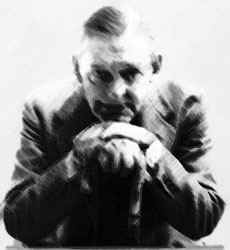“That Liberalism may be a tendency towards something very different from itself, is a possibility in its nature. For it is something which tends to release energy rather than accumulate it, so defined by its end, as by its starting point; away from, rather than towards something definite. Our point of departure is more real to us than our destination; and the destination is likely to present a very different picture when arrived at, from the vaguer image formed in imagination. By destroying traditional social habits of the people, by dissolving their natural collective consciousness into individual constituents, by licensing the opinions of the most foolish, by substituting instruction for education, by encouraging cleverness rather than wisdom, the upstart rather than the qualified, by fostering a nation of getting on to which the alternative is a hopeless apathy, Liberalism can prepare the way for that which is its own negation: the artificial, mechanized or brutalized control which is a desperate remedy for its chaos.” –The Idea of a Christian Society
Chapter 1
- What makes a Christian society different from the present one (ala'
England 1939)?
- When does a society cease to be Christian?
- How does Liberalism prepare the way for totalitarian governments?
- Why should political philosophies represent their people's
worldviews?
- How does political speech lose its meaning?
- Why does industrialism create a "well-fed" mob?
- What problems do a tolerated, Christian minority face in a pagan
society?
Chapter 2
- How does Eliot define a "Christian State"?
- Why are Christians in government not enough to address his concerns?
- What is the purpose of "Christian education"? What
undergirds it?
- What distinguishes a "Christian Community" from a
"Community of Christians"? (Be sure to consult pages 69-70 as well.)
- Why is the parish no longer effective?
- Why does there remain a need for a religio-social whole to shape
behavior?
- Why are neo-agrarianism and an uncritical acceptance of modernism
false answers to the current problem?
- How does the modern world mitigate against Christianity?
- How do modern economic systems work against the arts?
- Why is there a need for a uniform ideal in education?
Chapter 3
- Why is there a need for a majority, established Church?
- What should the Church of a Christian Society be?
- What are the temptations of the Established or National Church?
- What is the National Church's relationship to the Universal Church?
Chapter 4
- Why is it a mistake to identify any one form of government with
Christianity?
- Why is the Kingdom of God always being realized, never fully
realized?
- Why is there a need for religious orders?
- Why does a wrong attitude towards nature imply a wrong attitude
towards God?
Appendix
- Why should there be some tension between Church and State?
- Why should the Church interfere with the World?
- Why is there a need for humility in the Church?
- Why should the Church never be identified with one political party?
General Question
How is Eliot's social and political and religious
ideal present in his poetry and plays?
|
